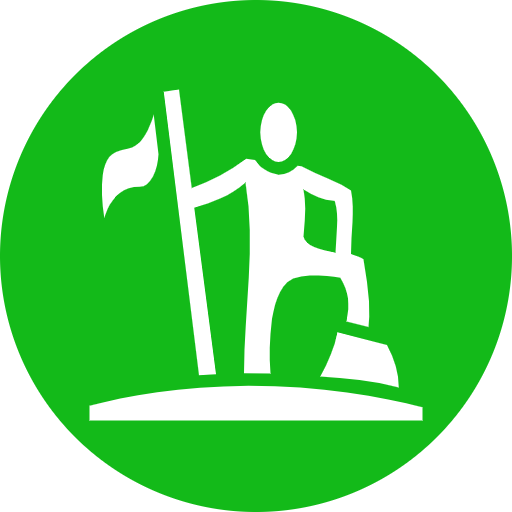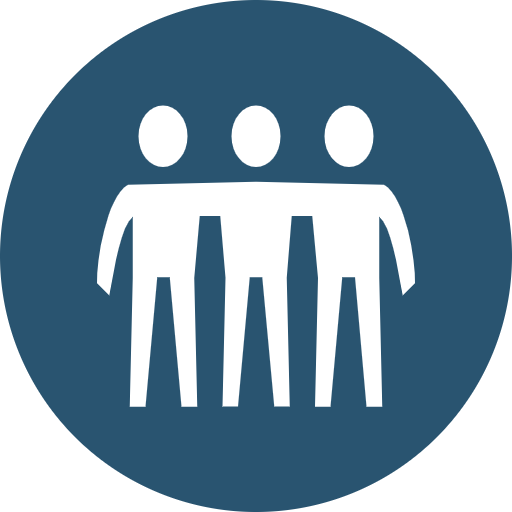


As powerful as your adventuring party may be, you can't spend every moment of every day out and about. Adventurers need to rest periodically in order to eat, sleep, and plan their next course of action. You choose what your character does during a rest, and their activities determine how they benefit from it.
It's vitally important for you and your party to rest periodically. If it's been 24 hours since your last rest of 4 hours or longer, you suffer Exhaustion 1. Every 24 hours after that without resting creates an additional level of exhaustion.
In order to start resting, the party must not be in combat and must not have a member who is incapacitated or otherwise unable to rest. Party members must be conscious at the time a rest begins in order to gain any benefit from it. It is advisable to rest in a safe location away from possible foes as being attacked and entering combat will interrupt your resting period and force you to restart it.
Restful activities must last at least one hour in order to gain any benefits. If you are interrupted during restful activity, you gain the benefits for the number of hours you rested, rounded down. Any physically or mentally demanding actions will interrupt your rest. As such, it's best to rest in safe or hidden areas where you're less likely to encounter any dangers.
When you sleep in an uncomfortable situation such as the ground or floor, or outside in inclement weather, you can only sleep for a maximum of 6 hours continuously. In comfortable resting locations, you can sleep for a maximum of 12 hours.
If your resting location has electric power, your cell phone and all other devices in your inventory that have batteries are fully recharged when you finish a rest lasting at least one hour. Electrically-powered vehicles may take considerably longer to charge.
You choose how your character spends their time resting. You may divide up the hours however you want between the actions below. Only Restful Actions give you any benefits, but other resting actions may help your allies benefit more from their resting time, so consider doing these if you're not too exhausted yourself.

You sleep to regain your energy and strength. While asleep, you take a -10 circumstance penalty to passive perception.
For every hour you sleep, you regain hit points equal to your hit point increment.
Long Rest: If you sleep uninterrupted for at least 8 hours, your life points are fully restored, your exhaustion is lowered by 1, and any temporary mental status effects are cleared.
Good Night's Sleep: When you spend an hour sleeping while already at full health, if you aren't injured or exhausted, you gain Rested 1 up to a maximum of 3 times.

You spend 1 hour eating a meal prepared by a member of the party or from a restaurant. Eating a good meal during a rest doubles the benefits of any other restful activities done afterwards, and halves the time needed to gain the benefits of an extended sleep.

You read from a book, or digitally from your phone or another device. While reading restfully, you regain hit points as you would while sleeping, but you can't benefit from the effects of an extended sleep.
The GM decides what you learn from reading, and what type of check (if any) is needed.

You spend one hour playing a video game on your advanced smartphone or computer during a rest. Doing well in the game gives you a temporary boost to your coordination and mental ability. Make a difficulty15 Gaming (Technology) check.
Service: Full
Discharge: 25% per hour
| Success: | You gain Rested 1. You can benefit from this effect only once per day. |
| Critical Success: | You gain Rested 2. |
| Failure: | You don't gain any benefits. |
| Critical Failure: | You become frustrated and can't sleep for the next three hours. |


You prepare a cooked meal during a rest for your party, or to sell to someone else.
You must use Rations to cook with. Each ration creates enough to feed one person.
Make a Cook (Technology) skill check of difficulty 15.
Assistance: Helpers make a Cook (Technology) check.
| Success: | You create a filling meal that is enough to serve one person per ration used. If sold, it's worth twice the cost of the rations consumed. |
| Failure: | Your cooking is lackluster and not filling. It has no effect on the time spent to rest. |
| Critical Failure: | Your food is sickening. Each person in the party, or anyone who buys it, is exposed to food poisoning. |

You spend 5 minutes to change into a different outfit from your inventory. This may be done during a rest.


You spend 20 minutes to give a wounded ally extensive and careful treatment. You must have a conscious and willing target (or yourself) and a Medical Kit in your inventory. This more prolonged treatment provides more healing benefits. Make a Treat Wounds (Medicine) check with difficulty 20.
Assistance: Helpers make a Treat Wounds (Medicine) check.
| Success: | The target regains hit points equal to 2d8 plus your Medicine modifier plus their Constitution modifier, their life points are fully restored, and all temporary status effects except for Exhaustion are cleared. |
| Critical Success: | The target regains double the usual amount of hit points, plus all other benefits. |
| Failure: | Your attempt has no effect. |
| Critical Failure: | The target gains no healing benefits and instead receives one level of the Bleeding status effect. |


You attempt to treat an infected creature for a specific disease. You must be within reach of a willing target. If the disease requires specific treatment, you must have those necessary items. Make a Treat Disease (Medicine) check against the Treatment difficultyof the disease. Your treatment takes 30 minutes.
If you don't recognize the disease, you have disadvantage. If you are not wearing protective equipment, you become exposed to the disease yourself.
Assistance: Helpers make a Treat Disease (Medicine) check.
| Success: | The target is cured of the disease and gains immunity to it for 10 days. |
| Critical Success: | The target is cured and gains immunity to the disease for one year. |
| Failure: | The target remains infected. |

You spend 1 hour practicing one of your skills or specialties. Make a generic check in the chosen skill with difficulty 15.
You can attempt this action no more than four times per 24-hour period during Exploration or Resting, and no more than ten times per week for a single skill.
| Success: | You gain 1d4 skill points in that skill or specialty. |
| Critical Success: | You gain 2d4 skill points. |
| Critical Failure: | You become confused and are unable to practice skills for 24 hours. |


You receive training in a skill or specialty from a trainer.
Make a skill check in the skill being trained. The difficulty of this check is 20, plus your current skill level, minus the trainer's skill level. If training in a specialty, add your specialty level to the difficulty and your result, and subtract the trainer's specialty level from the difficulty.
The training process might take hours or days depending on the skill and the desired level.
Assistance: Helpers make a generic skill check.
| Success: | Your skill level increases by 1. You can't benefit from further training in this skill for one week. |
| Critical Success: | Your skill level increases by 1, and you can benefit from further training in this skill immediately. |
| Failure: | Your skill level is unchanged, but you can benefit from further training in this skill immediately. |
| Critical Failure: | Your skill level is unchanged, and you can't benefit from further training in this skill for one week. |


You treat another creature for serious injuries. This process can take several hours, and requires an advanced medical kit, medical tent, or other dedicated location.
The difficulty to perform a complete heal depends on the number of conditions the target has. Consult the table below for difficulties and healing times. Make a separate Medicine check for each condition being treated.
This level of medical treatment should only be attempted by those with extensive practice. When in doubt, seek treatment from a medical professional for extreme injuries.
Assistance: Helpers make a Heal (Medicine) check.

You attempt to apply an enchantment you know to an object. Choose the enchantment you cast, the level to which you amplify it, and a valid target object.
Make a Spellcasting skill check using the spell's form of magic, and add your Specialty for its school of magic if applicable. Add the enchantment modifier of the target object if applicable.
The difficulty to cast enchantments is based on the level of the spell relative to your skill level in that form of magic - 15 if the two are equal, plus 5 for each level higher than your skill, or minus 5 for each level lower. (Casting enchantments 3 or more levels below your skill is trivial.)
The enchantment process takes one hour. The object must be either in your inventory or within your reach and must remain in your control for the duration of the enchantment process. If your concentration is broken or the object leaves your reach at any point during the process, the enchantment is interrupted and automatically fails.
| Success: | You successfully complete the enchantment. The energy and material costs of the enchantment are consumed, and the item gains the intended properties. |
| Critical Success: | You successfully complete the enchantment, and you may choose one unit of Aetherium or one unit of another of the enchantment's material costs to remain unused. |
| Failure: | The enchantment has no effect. The failed enchantment consumes your energy, but the materials remain. |
| Critical Failure: | The enchantment has unintended adverse effects determined by the GM. The caster may suffer exhaustion. Energy and materials used in the enchantment are lost. |